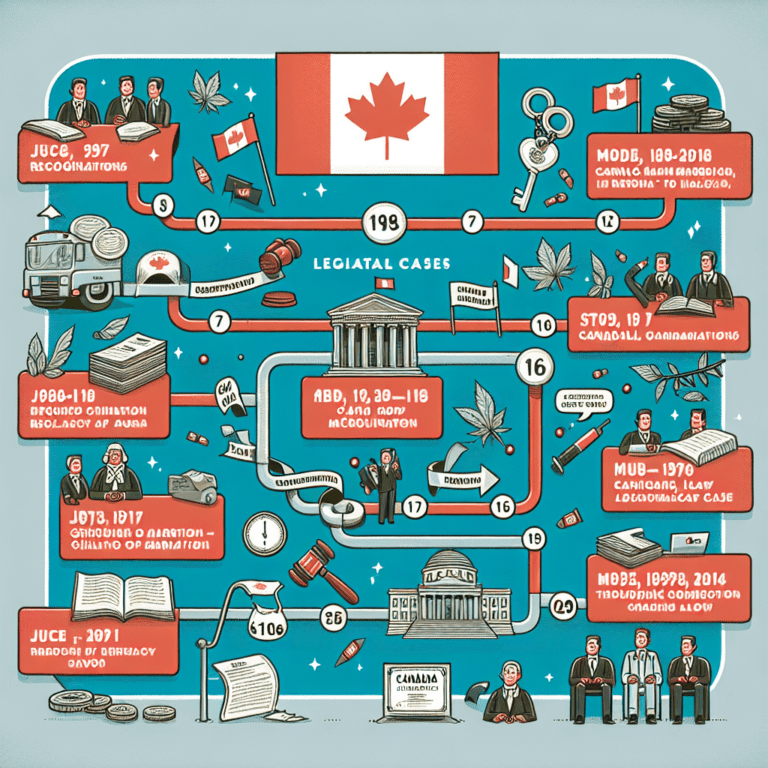In 2024, Canadians are standing at a crossroads due to pivotal updates in Canadian privacy legislation. As digital interactions escalate, the urgency for stronger protections has never been clearer. The introduction of new regulations is not just a response to growing concerns; it’s a transformation that promises to redefine how personal data is managed in this digital age. This article dives deep into the critical updates on Canadian privacy legislation for 2024 and their profound implications for both businesses and consumers.
Significant Changes in Canada’s Privacy Laws for 2024
As 2024 unfolds, Canada is ushering in a suite of significant updates to its privacy framework, spearheaded by the enactment of the Consumer Privacy Protection Act (CPPA). This legislation is poised to replace the Personal Information Protection and Electronic Documents Act (PIPEDA), marking a monumental shift in how organizations handle personal information. Among the most notable changes is the introduction of stronger consent requirements, compelling organizations to obtain explicit consent for data collection and use, rather than relying on implied consent. Additionally, the law emphasizes transparency, mandating businesses to disclose their data practices clearly and comprehensively.
Another noteworthy aspect of the 2024 updates is the heightened accountability placed on organizations. Businesses must now adopt more robust privacy management programs, demonstrating their compliance through regular assessments and audits. This shift not only holds organizations to stricter standards but also empowers consumers by providing them with clearer channels to seek redress in cases of data mishandling. By enhancing individual rights—such as the right to data portability and the right to deletion—these updates create a more consumer-centric approach to privacy.
The regulatory landscape is further complicated by the introduction of significant penalties for non-compliance, which can reach up to 5% of an organization’s gross global revenue. This punitive measure signals a serious commitment from the Canadian government to enforce privacy rights and uphold the integrity of personal data. As a result, businesses must recalibrate their data management strategies to avoid these substantial fines and maintain consumer trust. The 2024 updates signal a new era of privacy protection that holds profound implications for all data-handling entities operating in Canada.
Implications of New Regulations on Businesses and Consumers
The new privacy regulations will inevitably reshape the business landscape, compelling organizations to invest in advanced data protection strategies. Compliance with the CPPA requires a comprehensive understanding of new obligations, which may necessitate hiring specialized personnel or engaging third-party consultants. Businesses will need to ensure that their data collection, storage, and processing practices align with the stringent requirements of the new law, including implementing user-friendly consent mechanisms that facilitate informed decision-making by consumers.
For consumers, the implications of these legislative changes are overwhelmingly positive. The introduction of enhanced rights not only empowers individuals but also fosters greater trust in digital ecosystems. With the ability to understand and control how their data is used, consumers can navigate the increasingly complex digital marketplace with confidence. Enhanced transparency requirements mean that consumers will be better equipped to make informed choices about which organizations they engage with and how their data is treated.
Moreover, the potential for significant penalties for non-compliance might compel businesses to prioritize privacy as a core strategic objective, rather than treating it as an ancillary concern. This shift could ultimately lead to an environment where data protection becomes a competitive advantage, encouraging organizations to innovate in their privacy practices. As businesses adapt to these changes, consumers will benefit from improved data management practices, higher standards of accountability, and ultimately, a more secure digital experience.
The 2024 updates on Canadian privacy legislation present both challenges and opportunities for stakeholders across the board. As businesses navigate the new landscape, they have a unique chance to reimagine their data practices and foster genuine trust with consumers. At the same time, Canadians can look forward to a future where their personal information is treated with the respect it deserves. Staying informed and proactive will be essential for both businesses and consumers in this rapidly evolving environment. Engaging with these developments now will ensure you are well-prepared for the future of privacy in Canada.
Navigating Legal Aid Options for Refugees in Canada 2024Exploring Human Rights Legal Support in Canada: 2024 InsightsNavigating Legal Support for Wrongful Termination in Canada 2024Relevant LinkRelevant LinkRelevant LinkUnderstanding LegalZoom Billing: Fees, Structure, and InsightsUnderstanding LegalZoom’s Basic Will: Key Features ExplainedUnderstanding LegalZoom’s Business Address Services ExplainedRelevant LinkRelevant LinkRelevant LinkUnderstanding Legal Self-Defense Weapons in CanadaUnderstanding Legal Paper Size: Dimensions and Uses ExplainedNavigating Legal Name Changes in Ontario: A Comprehensive GuideRelevant LinkRelevant LinkRelevant Link



















